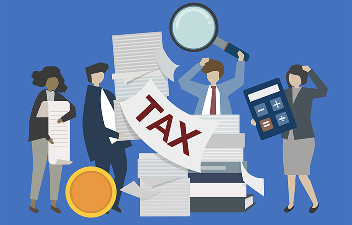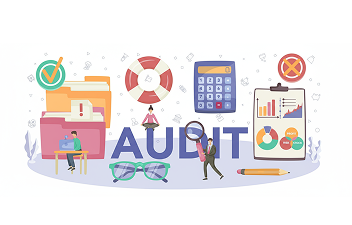
Top Accounting Tips for Small Businesses: Insights from a Local Accountant Near You
Are you a small business owner dreaming of an exciting journey and big dreams? If yes, don’t let it ruin good accounting practices. There are several challenges you might face while running a new business, that may deter you from making the right decision. If you manage a business, no matter what size it is or what products you sell, understanding the numbers is crucial. That’s where personalised advice and guidance works to strengthen your business and guide it in the right direction. Finding the right small business accountant near you will help you fight off those challenges. In this blog, we will discuss specific challenges and wisdom from experts to help you challenge all obstacles on the way.
Useful tips for small businesses from expert accountants
● Refrain From Mixing Business and Personal Finances
What’s the first and foremost thing you should remember when you become an entrepreneur? It’s to separate your business and personal life, whether it’s relationships or finances. Calculating taxes for your business can be a lot tougher than you think if you are new in this field, and mix it with personal finances, causing it to become more difficult. It’s vital that you open a separate bank account dedicated to your business as it also helps you to calculate your business’s true financial performance.
So,
- Open a new bank account.
- Avoid using the same card for your business and personal expenditure.
- Keep a track of your transactions from day one.
If you were to search for a small business accountant near me, they can help you with these steps as it makes your finances clear, reduces errors and also gives you protection.
● Bookkeeping Is Most Important
You are very wrong if you underestimated the power bookkeeping holds. And just because it isn’t all fun and games, it doesn’t mean you can skip it, but clearly we most often skip what’s most important. You now know how beneficial it is to open a new account for a healthy financial future of your business. That’s why you also need to know it’s equally satisfactory to record where your investments went.
Regular bookkeeping can give you benefits like:
- Noting down what your profit is and how much you invested.
- Your cash flow and inventory levels.
- The depths and receivables.
- Your expenses of the month.
- Your taxes
You can outsource this work to a small business accountant near me or you, or take some time out every week and do it yourself. This saves time and a pile of paperwork.
● How Much Is Your Debt and Receivables?
If you are running a business, having enough cash becomes very essential in case you want to start a new venture or have an emergency. That’s where many small businesses fail, and learning about cash flow of your business becomes an important factor. The flow of money in and out of your business is referred to as cash flow.
Knowing more about it can help businesses in:
- Manage payment of suppliers.
- Avoid shortage of funds.
- Manage finances during off peak months.
- Plan for future growth.
You can prepare a cash flow forecast by taking help from a local accountant. This tool can be very powerful if you are planning financial visibility and stability.
● Hold onto Your Receipts and Expenses
It is important to file taxes if you are an entrepreneur, receipts are very important when it comes to taxes.
You should obtain receipts for:
- Travel
- Utilities
- Marketing
- Professional services
- Services
- Supplies
- Equipment
Receipts can easily be read through digital tools and using a small business accountant near me or you, can guide you and help to legitimate deductions are legitimate.
● Taxes Are Important too
Taxes, the word causes most brains to short circuit, but ignoring them may not be the best idea. If you are running a small business, filing taxes can be tricky but with the right amount of preparation.
Small businesses should look into:
- Income tax
- Corporation tax
- Payroll taxes
- VAT
- Self-assessment obligation
If you are looking to run your business smoothly without any penalties and surprises then planning to file taxes in early stages of your business becomes important. Hiring a small business accountant near me or you can be another step towards a prosperous business. A local accountant can help you manage your finances so that you can keep a little amount aside monthly so that sudden emergencies don’t surprise you.
Conclusion
Running a business can be a piece of cake if you get your accounting right. Strong unwavering accounting doesn’t only give you a strong foundation for future growth but the very base of successful business. You need to shape your business by making thoughtful decisions about the cash flow, tax planning and financial forecasting. A small business accountant near me can help you make these decisions for you that gives you clarity, confidence and accuracy. Added to that you get to avoid stupid mistakes and save your money.








